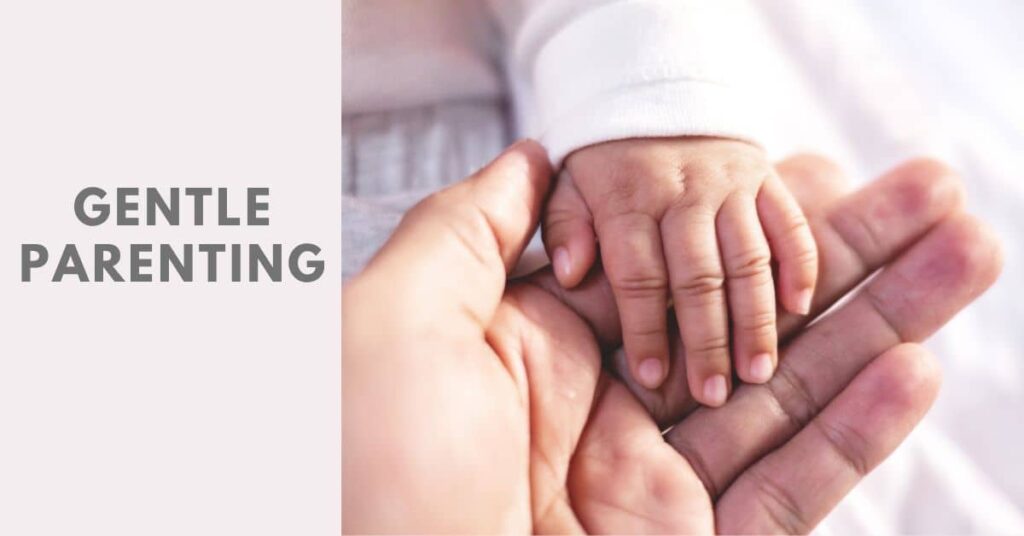Counter parenting refers to behaviours by divorced or separated parents that undermine the other parent’s relationship with the children or interfere with custody and visitation arrangements. It is a harmful form of parenting that sabotages the co-parenting relationship and is not in the child’s best interests.
Understanding Counter Parenting
Counter-parenting behaviours are motivated by a parent’s anger, resentment, or need for control over the ex-partner or children. Examples include:
- Badmouthing the other parent in front of the child by making demeaning comments about their competence or character. For instance, saying, “Your father never keeps his promises” or “Your mom just wants to spoil you”.
- Withholding or restricting phone, video, or in-person contact between the child and other parents without reasonable cause. For example, refusing to answer or return calls from the other parent or not allowing scheduled visitation.
- Changing or cancelling custody arrangements and visitation schedules without appropriate notice or justification.
- Failing to provide the other parent information about the child’s health, education, activities, and milestones promptly. For instance, not informing the other parent about parent-teacher conferences, medical appointments, sports events, recitals, etc.
- Manipulating or alienating the child against the other parent through criticism, false accusations, or withdrawal of affection and approval. This can involve overt emotional abuse, where the child is told the other parent does not care about or want them.
These behaviours undermine the authority and involvement of the targeted parent, damage the co-parenting relationship, and negatively impact the child’s well-being and development. In severe cases, parental alienation may occur, where a child has been manipulated to unjustly reject a parent.
Counter Parenting by a Narcissistic Parent
A narcissistic personality-disordered parent views the child as an extension of themselves, seeks to maintain control, and lacks empathy for the impact of their behaviour. Narcissists see the other parent as threatening their dominance and will retaliate aggressively to overpower them.
Common narcissistic counter-parenting tactics include:
- Using the legal system to harass and intimidate through excessive litigation over custody and finances. This drains the other parent emotionally and financially.
- Isolating the child from the other parent’s extended family and friends. This cuts them off from potential support systems.
- Employing manipulation and threats to coerce the child into rejecting the other parent. For example, saying they will withdraw financial support for college unless the child sides with them.
- Subjecting the child to emotional blackmail by threatening to harm themselves if they do not comply with their demands.
- Falsely accusing the other parent of child abuse, domestic violence, or other illegal behaviours to gain the upper hand legally and damage their reputation.
Children experience emotional and psychological challenges from narcissistic counter-parenting. They feel torn between parents, believe lies and criticisms about the targeted parent, and learn unhealthy relationship dynamics. Parental alienation, in extreme cases, can be very damaging.
Effects on Children
Research conclusively shows counter parenting and exposure to parental conflict has significant negative consequences for children, including:
- Anxiety, depression, and low self-esteem: Children internalize the hostility and manipulation, blaming themselves for their parent’s conflict. Their sense of security and self-worth is undermined.
- Poor academic performance and reduced cognitive abilities: Chronic stress impairs a child’s concentration and focus, impacting learning.
- Behavioural problems: Children may act out or withdraw to cope with emotional turmoil and insecurity. They can become defiant or clingy and have trouble empathizing with others and managing strong emotions.
- Difficulty forming relationships: Witnessing unhealthy relationship dynamics shapes children’s expectations and interpretations of relationships. They may perceive relationships as unsupportive, undependable, or threatening.
- Parental alienation and damaged relationship with targeted parent: In severe cases, the child unjustly rejects a parent due to manipulation and lies. Rebuilding trust and connection can take years.
These effects can last into adulthood if left unaddressed. Counselling and a supportive relationship with the targeted parent are critical to overcoming the trauma of counter-parenting.
How to Counter Counter Parenting
If you suspect you are experiencing counter-parenting, there are proactive steps you can take:
- Document specific instances of concerning behaviour in a parenting journal and keep records of all communication. This documentation can be presented in court to demonstrate the pattern of counter-parenting.
- Seek counselling or mediation to establish healthy co-parenting practices and boundaries. A third party can help identify counter-parenting behaviours, set appropriate limits, and determine the child’s best interests.
- Limit direct contact with the other parent as much as possible and communicate in writing via email or a court-approved co-parenting app. This reduces opportunities for conflict and provides a record of communication.
- Share information about the child’s well-being and activities with the other parent in a timely, fact-based manner. Do not withhold information or use it as a means to manipulate it. Respond promptly to questions and requests about medical, educational, and social matters.
- Reassure your child of your love and support; do not criticize the other parent. Focus on your relationship with your child rather than disparaging the other parent.
- Consult with a family law attorney regarding legal options, such as modifying current custody orders if the situation warrants. In severe cases of counter-parenting, limiting contact with the perpetrating parent may be necessary to protect the child.
The most important thing is shielding your child from harm. The impact of counter-parenting can be minimized with support, awareness of the issue, appropriate boundaries, and the willingness to make difficult decisions. In time, a child who has experienced counter-parenting can heal and rebuild trust, but their well-being must come before all else.
Reference:
- (Minkin & Horowitz, 2023) Parenting in America today
- (Anderson & Jiang, 2020) Parenting children in the age of screens
FAQ
What are the signs of counter-parenting?
Counter-parenting occurs when one parent deliberately undermines the other parent’s authority and parenting strategies. Some common signs of counter-parenting include:
- Criticizing the other parent in front of the children
- Questioning or arguing against the other parent’s rules and boundaries
- Spoiling the children or giving them whatever they want to curry favour with them
- Sharing inappropriate details about the separation or divorce with the children
- Making last-minute changes to visitation to upset the children’s routine
How does counter-parenting affect children’s development?
Counter parenting can have significant negative impacts on children:
- It confuses children by exposing them to conflicting rules and expectations. This can hamper their moral and social development.
- It forces children to choose sides, damaging their relationships with one or both parents.
- It creates instability, stress, and anxiety in children who never know what to expect.
- It teaches children unhealthy relationship dynamics and how to manipulate situations to get their way.
- In severe cases, it can cause loyalty conflicts and parental alienation syndrome.
Is counter-parenting always intentional or deliberate?
Only sometimes. In some cases, counter parenting behaviors may be unintentional. For example:
- Lack of communication: Parents may contradict each other simply due to a lack of discussion about rules and expectations. Improving communication often resolves these situations.
- Different parenting styles: Parents have different philosophies about child-rearing, discipline, boundaries, etc. Compromise and finding common ground are important.
- Lack of awareness: Some parents engage in counter parenting behaviours without realizing the impact on the children and co-parenting relationship. Education and counselling can help address this.
However, in many cases, counter-parenting is an intentional tactic used to undermine the other parent. This type of behaviour requires legal intervention and consequences.
Can counter-parenting be overcome through mediation?
Mediation can effectively overcome counter-parenting if both parents are willing to participate in good faith. A mediator can help:
- Improve communication and set ground rules for respectful co-parenting.
- Identify harmful behaviours and establish consequences if those behaviours continue.
- Come to agreements on consistent rules and schedules to make sure the children understand.
- Compromise when parenting styles differ.
For mediation to work, both parents must be open to accepting responsibility for their actions and be willing to put the needs of the children first. If one parent is unwilling to cooperate, legal intervention may be necessary.
What legal actions can be taken against counter-parenting?
If counter-parenting continues despite attempts to mediate, legal action may need to be taken:
- Custody modification: If one parent’s behaviours damage the children, the other parent can request an amendment to sole or primary custody.
- Legal consequences: The court can issue sanctions, fines, or even jail time for a parent who willfully violates court orders.
- Parenting coordinators: The court can appoint a parenting coordinator to facilitate communication and uphold parenting agreements.
- Supervised visitation: In severe cases, the court may order to overlook one parent’s time with the children.
Are there support groups or resources available for parents dealing with counter-parenting?
Yes, there are resources available for parents dealing with counter parenting:
- Counselling: Speaking to a counsellor or child psychologist can help develop strategies for setting boundaries and helping your children cope.
- Parent advocacy groups: Groups like Divorce Support Groups, Parents Without Partners, and Stand Up for Genuine Equality in Divorce (SUGED) can offer advice and connections with others in similar situations.
- Online resources: Websites like Co-Parenting After Divorce, Stop Parental Alienation Project, and CounterParent Education offer articles, advice, and discussion forums for parents dealing with high-conflict co-parenting and parental alienation.
- Domestic violence agencies: If there are threats, violence, or safety concerns, agencies like National Domestic Violence Hotline and Break the Cycle may be able to offer resources and legal advocacy.
How can I establish boundaries with a counter parenting co-parent?
To establish boundaries with a counter parenting co-parent:
- Communicate in writing. Reduce verbal communication and document requests and agreements in writing, email, or text.
- Stick to the custody agreement. Do not make informal changes. Refer to the existing deal for all parenting schedules, drop-offs, holidays, etc.
- Set limits. Be clear, consistent, and firm with your boundaries while remaining calm and respectful. Don’t engage or argue.
What strategies can I use to co-parent effectively with a narcissistic ex-partner?
Some strategies for co-parenting with a narcissistic ex include:
- Focus on the children. Put their needs and well-being first. Don’t let the narcissist’s behaviour affect your relationship with your children.
- Detach emotionally. Don’t take the narcissist’s attacks personally. Recognize that they are projecting their insecurities and issues onto you.
- Avoid triggers. Don’t give the narcissist any ammunition to use against you. Avoid topics that may cause conflict or escalation. Don’t react to their provocations or insults.
- Seek support. Surround yourself with people who understand your situation and can offer emotional and practical support. Join a support group or seek counselling if needed.
Counter parenting is a serious issue that can affect children and parents. By understanding the signs, causes, and consequences of counter parenting, you can take steps to protect yourself and your children from its harmful impact. You can also seek help from professionals and resources that can assist you in navigating this challenging situation. Remember that you are not alone and that there are ways to cope and heal from counter parenting.

I’m Mithun Debnath, a dedicated dad and the founder of Papa Parenting. I’m here to share my parenting journey, tips, and insights to make your life as a parent a little easier. Join me as we navigate the adventures of fatherhood together.






